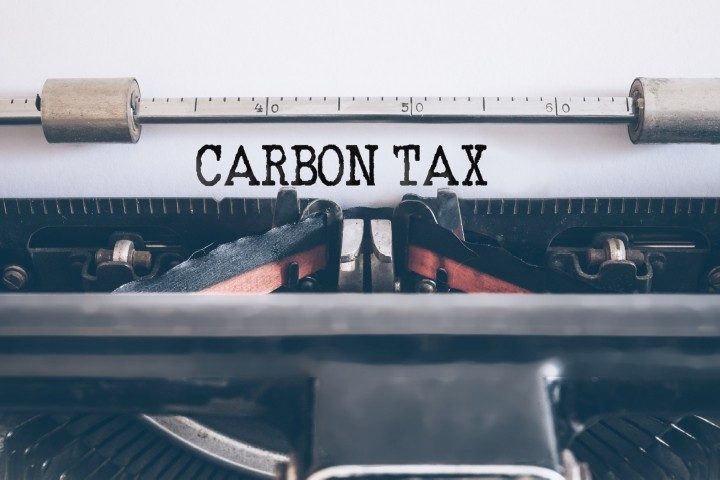
With Donald Trump conceding and both Georgia Senate races going to Democrats, it’s time to start thinking about the damage a Joe Biden presidency might do to our economy. Without any restraint from Republicans in Congress, it’s likely some old Obama-era ideas such as carbon taxes and cap and trade may soon be resurrected.
In the Sydney Morning Herald yesterday, Andreas Kluth brought forth the idea of a partnership between the United States and the European Union, essentially forming a new transatlantic “climate club.”
“The geopolitical promise of this idea is to resurrect the notion of the ‘West’ at a time when the U.S. and Europe are drifting apart but still hoping to rejuvenate their alliance after Joe Biden becomes president. The even bigger goal is to win the struggle against global warming, which both Biden and the E.U. cite as their priority,” Kluth writes.
Kluth envisions a fantasy world where, led by the United States and the E.U., countries around the world will willingly join in on a plan that will accomplish possibly nothing regarding its stated goal while vigorously collecting carbon taxes or forcing corporations and other stakeholders to purchase carbon offsets.
Kluth rightly points out the problem implicit in such a scenario by comparing a European steelmaker to a Chinese one. A European steelmaker will have to comply to the dictates set out by such an agreement — be they paying heavy taxes on emissions or purchasing carbon offsets. The only way to avoid these costs is by coming up with some way to produce steel that doesn’t emit any carbon. The trouble is, such a method for producing steel does not exist currently and may never exist.
“By contrast, a Chinese steelmaker doesn’t incur this cost yet,” Kluth points out. “A European firm that uses steel could therefore simply switch to buying it more cheaply from China than from the home market. The European steelmaker and its workers lose. And the world loses because the same amount of carbon — or even more — has just been emitted, just elsewhere. Only the Chinese supplier wins.”
The obvious weakness in any climate agreement is that the entire world — including China and India, two of the largest so-called emitters — would have to agree to the terms set by the members. Without complete agreement from everyone, the agreement either collapses or is ineffectual, regardless of any tariffs imposed against non-compliant states.
In Kluth’s vision, the problem of “free riding” countries such as China would be addressed by the club model proposed by economist William Nordhaus. In that model, the “club” would agree upon either a global carbon tax or cap-and-trade system, which would act as “dues” for the club. Countries outside the club would have to pay carbon duties on items they export to club members.
Eventually, according to Kluth, “The benefits of membership would be obvious, so the club would be a stable coalition. All others would quickly see the upside of joining the club by aiming for the same international carbon price at home.”
But Kluth is viewing the world through rose-colored glasses, at best. Perhaps under threat, such an alliance might be capable of forcing countries in their spheres of influence into compliance. But it’s unlikely that the world’s biggest emitter, China, could be coerced into such a scam. That sets up the possibility of trade wars and perhaps even shooting wars in the near future. Will armies and navies on the move be careful or even aware of their carbon footprint?
Kluth is also envisioning a world in which new carbon-neutral technologies either exist or are on the cusp of being created — they do not; and they are not.
This brings us back to the issue of Joe Biden and a compliant Congress setting climate policy in the United States. Would Biden consider membership in such a “climate club?” It’s certainly possible. Biden’s climate czar John Kerry has already said that job one on taking office will be to sign on again to the Paris Climate Agreement. Clearly the future president has no aversion to climate deals going forward.
Biden has stated that the budget-busting fantasy known as the Green New Deal is “a crucial framework for meeting the climate challenges we face.” It’s a frightening proposition to think that Biden and his minions will now have a somewhat free rein to do what they will with regard to climate change. A climate club might be the least of our worries going forward.




